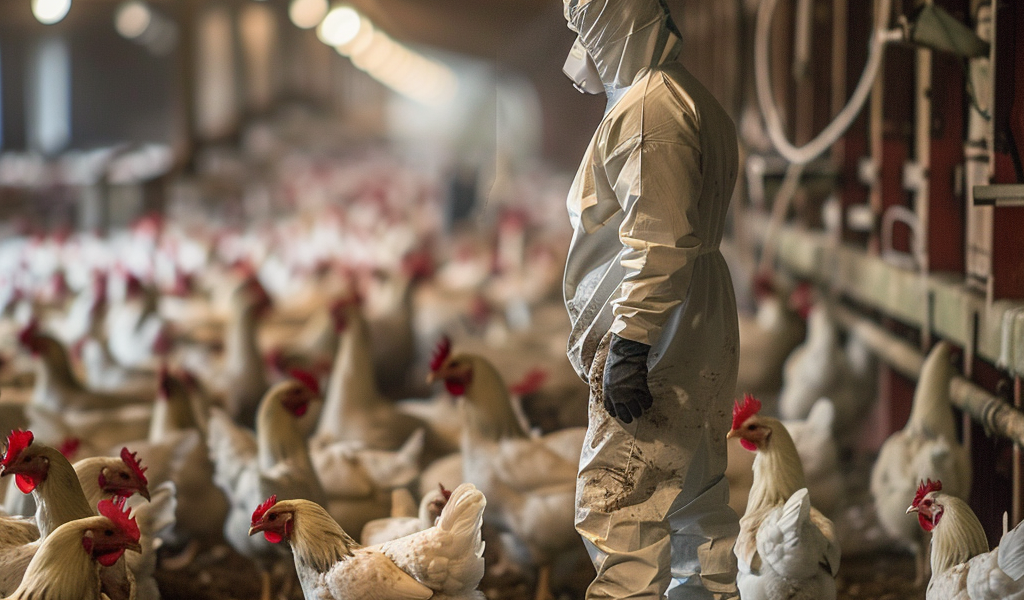In a concerning development for the poultry industry in Michigan, the highly pathogenic avian influenza (HPAI), commonly referred to as bird flu, has been detected at a commercial poultry facility in Ottawa County. This alarming news was confirmed by the Michigan Department of Agriculture and Rural Development (MDARD) in a press release issued on December 16, 2024.
The specific identity of the affected farm and the number of birds impacted have not been disclosed by state officials. This outbreak marks the first instance of HPAI being identified in a Michigan poultry flock since May 2024, when the state grappled with its most significant outbreak to date. Additionally, it represents the second occurrence of the virus in a commercial poultry operation in Ottawa County since the disease was first reported in Michigan in 2022.
MDARD officials emphasize the critical importance of controlling the spread of HPAI to safeguard both the health of Michigan’s domestic animals and public health. Dr. Natasha Bagdasarian, the chief medical executive, highlighted the need for farm workers to utilize personal protective equipment (PPE) to shield themselves and their families from potential exposure. “Preventing spread from animals to humans is vital if we want to limit the impact of this virus,” she stated.
In response to the outbreak, the affected facility has been placed under quarantine. The protocol involves depopulating, or humanely killing, the birds in order to curtail the spread of the disease. These measures are essential not only for controlling the outbreak but also for maintaining the safety and integrity of the commercial food supply.
MDARD Director Tim Boring reiterated the agency’s commitment to protecting human health by slowing the spread of HPAI. “Implementing on-farm biosecurity and expanding our HPAI surveillance efforts are key strategies to prevent opportunities for the virus to infect domestic animal species and potentially spread and become a more concerning human threat,” he affirmed.
Avian influenza is known for its high contagion rates, spreading rapidly from flock to flock. The virus can be transmitted through various means, including contact with infected poultry, equipment, or even through the clothing and footwear of farmers who may inadvertently carry the virus from one location to another. Under U.S. Department of Agriculture regulations, any farm with a confirmed case of HPAI is mandated to depopulate its entire flock, regardless of the number of birds infected.
As winter sets in and temperatures drop, conditions become increasingly favorable for the virus to persist and proliferate, particularly among wild bird populations. State Veterinarian Dr. Nora Wineland noted the heightened risk during colder months, stating, “As the weather remains cold and HPAI continues to circulate in wild bird populations, conditions are ideal for the virus to thrive and spread.”
Farmers and poultry producers are urged to remain vigilant and implement stringent biosecurity measures to protect their flocks. This includes monitoring for signs of illness in birds, maintaining cleanliness in facilities, and limiting exposure to wild birds that may carry the virus. The cooperation of the agricultural community is essential in combating the spread of HPAI and ensuring the safety of both livestock and public health.
As the situation develops, MDARD will continue to provide updates and guidance to poultry producers and the public. It is crucial for all stakeholders to stay informed and take proactive steps to mitigate the risks associated with avian influenza.





